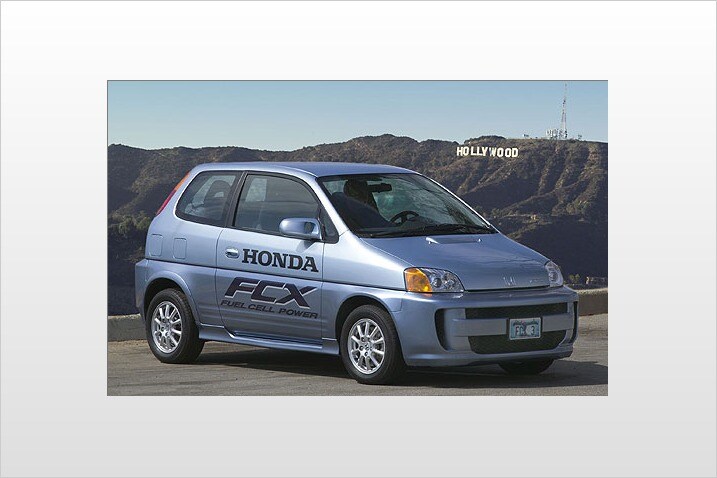Next Steps
The real-world research thus far is helping to further the development of fuel cell vehicles, and over the next five years, a couple hundred fuel cell vehicles are likely to make their way to our nation's roads as part of the president's Hydrogen Research Initiative. Just the same, it will be quite a while before we find fuel cell cars at our local dealerships, and when we do, they will likely be sold alongside traditional gasoline-powered vehicles and gas-electric hybrids — at least initially.
"Our crystal ball is no clearer than other experts', but we tend to agree with the U.S. Department of Energy's timeline, which identifies 2015 as a reasonable timeframe for the auto and energy industries to move forward on developing the products and infrastructure and make the commercialization decisions," Ford's Sakioka said.
"It must also be remembered that gasoline will not disappear overnight, and as we've seen with our SULEV technology, gasoline cars can be very clean," Nissan spokesperson Sumi Shimizu noted.
Oil and gas are likely to remain the dominant energy sources until somewhere around 2040, according to a study conducted by Royal Dutch/Shell, although the study did indicate that fuel cell vehicles could account for 25 percent of new auto sales in industrialized nations as early as 2020.
"Our goal is to have fuel cell vehicles available in the beginning of the next decade, assuming the infrastructure happens as well," said GM's Vail. "It could be as early as 2010 or 2012 that we begin to have them available. Depending on the infrastructure, it is entirely possible that there might be other countries (other than the U.S.) that get fuel cell vehicles first."
The years between now and the time fuel cell vehicles arrive in showrooms will be a time of education, both within the industry as well as with the consumers who will eventually be able to buy these vehicles. "With every person who drives an alternative-fuel vehicle, whether it be a hybrid, a compressed natural gas car or a fuel cell vehicles, we are building a class of apprentices who will help to bridge the gap between today's internal combustion cars and the cars of tomorrow," said Honda's Ellis, as I pulled back into the driveway of the hotel.
When the valet came around to open my door, I looked at his warm brown eyes once again, wondering if he had any idea he was in this elite group of apprentices. "It's running," I said, taking the claim check from him.
"Yes, ma'am, I know," he replied as he slid behind the wheel.
